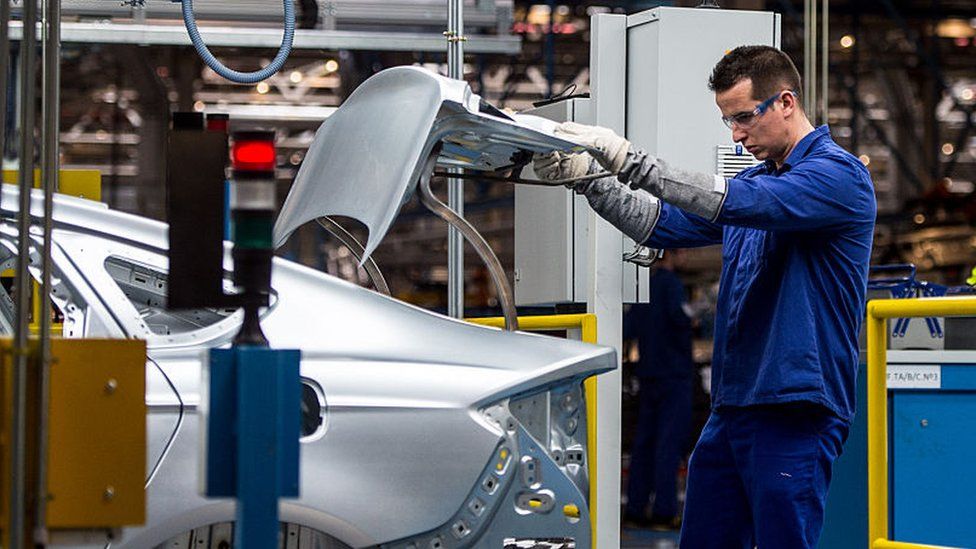 Getty Images
Getty ImagesFord has chosen a plant in Valencia to build its next generation electric vehicles in Europe, as the company reorganises its operations.
The US automaker selected the site over a rival facility in Saarlouis, Germany.
The company plans to only sell electric cars in Europe by 2030, ahead of a planned EU ban on the sale of new petrol and diesel vehicles.
But there will be “significant” job losses as part of its changing strategy, a spokesperson told Reuters.
Electric cars rely more on automated assembly lines to build, requiring less human involvement.
Plants that do not secure production orders for electric vehicles, such as the Saarlouis facility, which employs 4,600 workers, face the threat of closure once an EU ban on the sale of new petrol and diesel cars, planned for 2035, comes into force.
And even for the sites that are selected for electric vehicle assembly – including the Valencia plant, which employs 6,000 workers – Ford has warned there will still be staffing cuts.
The company has a number of additional plants in Europe, including in Cologne in Germany, Turkey, and Romania that have been selected to produce electric vehicles.
Ford has promised to invest $2bn in its Cologne factory, where from next year it will produce electric cars using licensed technology from Volkswagen.
The site in Valencia will be responsible for producing all of the Ford car models that use the company’s in-house electric vehicle technology.
Historically, Ford has struggled to be profitable in Europe, a highly competitive car market. It has used the movement toward electric vehicles as a launching pad for a leaner, restructured business in the region.
Ford has already trimmed 12,000 workers from a staff in Europe of more than 50,000.
“Bringing our all-new electric vehicle architecture to Valencia will help us build a profitable business in Europe,” said Stuart Rowley, chairman of Ford’s European division.
Meanwhile, the company’s global chief executive said that Ford’s pivot to electric vehicles in Europe would require tough decisions.
“The European auto industry is extremely competitive, and to thrive and grow we can never settle for less than unbelievably great products… [and] ultra-lean operations,” said Jim Farley, Ford’s president and chief executive.
Sales of electric vehicles in the UK have soared in recent years, with more battery-powered cars registered in 2021 than in the previous five years combined, according to the Society of Motor Manufacturers and Traders (SMMT).
Registrations of electric cars rose more than 75%, from 108,000 in 2020 to 191,000 last year.
In December, they accounted for one in every four cars sold, while the second-bestselling car in the country during the year was Tesla’s electric Model 3.
-
- 28 September 2021
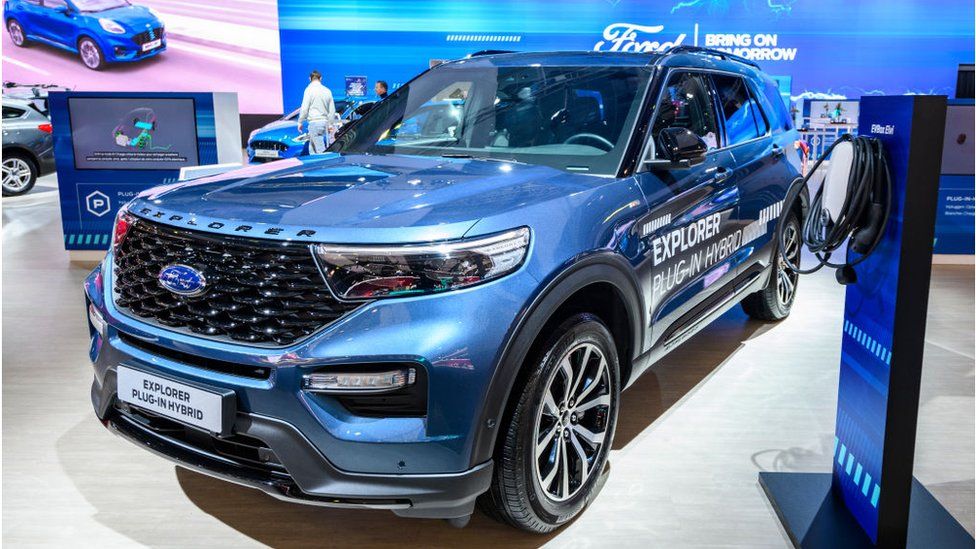
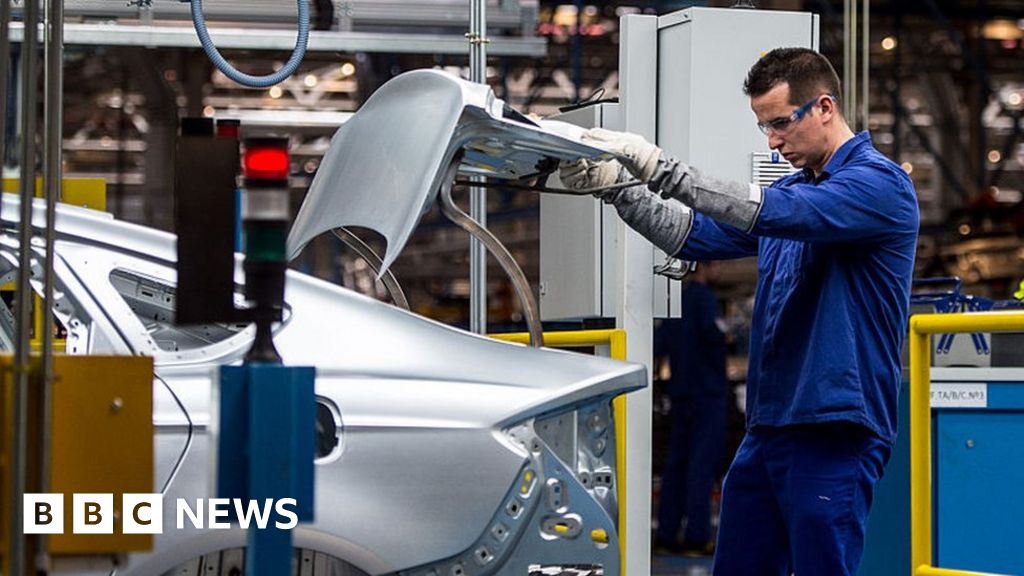
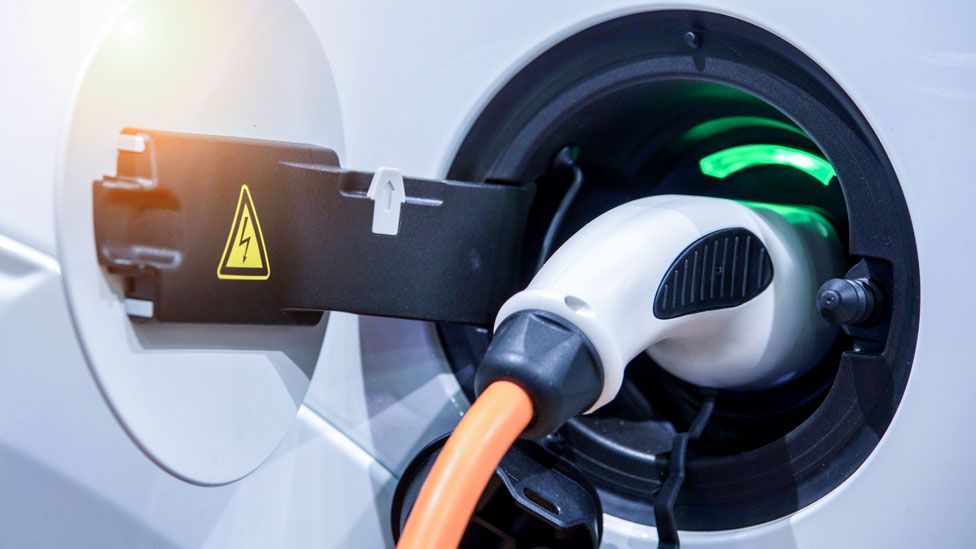
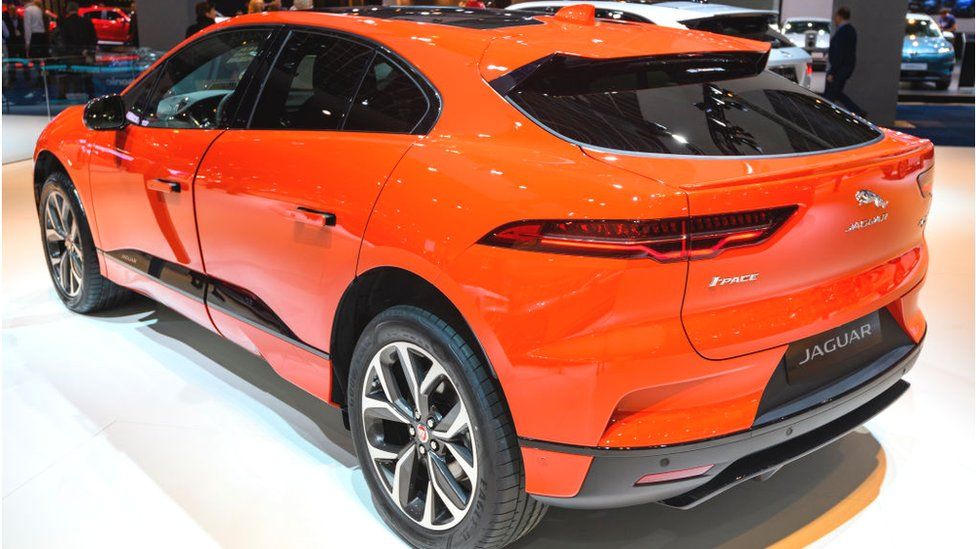
ivermectin 6 mg tablets for humans – ivermectin 12 mg tablet generic tegretol
vibra-tabs online buy – acticlate over the counter glipizide generic
amoxiclav price – buy augmentin 1000mg for sale duloxetine 20mg oral
viagra order – brand viagra 50mg purchase tadalafil without prescription
buy cenforce 50mg – cenforce medication generic metformin 500mg
buy generic atorvastatin – buy prinivil sale order generic lisinopril 2.5mg
methylprednisolone 4 mg without a doctor prescription – buy triamcinolone generic triamcinolone 10mg generic
buy desloratadine online – loratadine 10mg over the counter buy priligy pills for sale
order acyclovir 800mg pill – zyloprim 100mg cheap order rosuvastatin generic
motilium 10mg pill – order flexeril 15mg pill flexeril price
inderal 20mg drug – methotrexate 5mg without prescription methotrexate 10mg price
buy generic medex over the counter – order reglan 10mg for sale order losartan 25mg generic
nexium 20mg drug – order imitrex 50mg online cheap sumatriptan ca
order levaquin 500mg pills – buy levofloxacin 250mg pill buy ranitidine for sale
ondansetron over the counter – spironolactone 25mg generic how to get simvastatin without a prescription
valacyclovir 1000mg price – buy finasteride 1mg online cheap purchase fluconazole generic
buy modafinil 100mg for sale provigil cost provigil pills provigil 100mg us modafinil 100mg usa oral provigil 100mg order modafinil 200mg pill